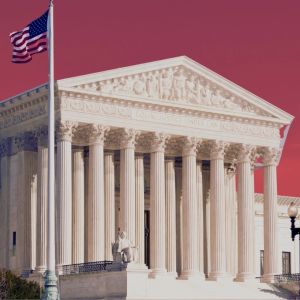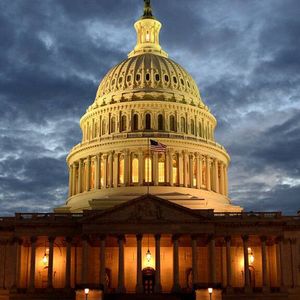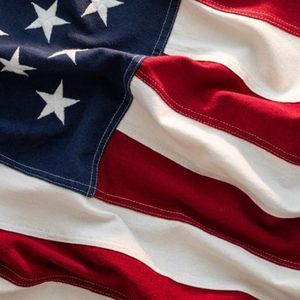According to the far-right libertarian financial blog ZeroHedge, U.S. financial conditions have been tight since the 2020 COVID pandemic. The firm also revealed that the U.S. financial conditions are even tighter than during one of the most rapid Fed hike cycles ever, in 2022. The news aggregator argued that conditions have tightened rapidly after stocks pulled back and credit spreads rose. ZeroHedge also suggested that the economy may slow even further in the upcoming months. Stocks ended a volatile week with a bounce on April 11, while government bond markets continued to show investors worry about the impacts of new import tariffs. George Goncalves, head of U.S. macro strategy at MUFG, stated that “it’s a different U.S. investment environment” while referring to the challenging trading conditions that have arisen from a rapidly shifting tariff regime. U.S. financial conditions worsen to levels since the 2020 pandemic BREAKING: US financial conditions are now their tightest since the 2020 pandemic, per ZeroHedge. Financial conditions are even tighter than during one of the most rapid Fed hike cycles of all time, in 2022. Conditions have tightened rapidly as stocks have pulled back, while… pic.twitter.com/d53KqrwU4D — The Kobeissi Letter (@KobeissiLetter) April 14, 2025 ZeroHedge has revealed that U.S. financial conditions are at their tightest since the 2020 pandemic. The company also acknowledged that financial conditions have tightened more than in 2022 during one of the most rapid Fed hike cycles ever. Data showed that the Fed’s 1-year inflation expectation is at 3.6%, up from 3.1%; its 3-year inflation expectation is at 3.0%, while its 5-year inflation expectation is at 2.9%, down from 3.0%. The firm argued that the availability and cost of financing for economic activity have worsened due to a pullback of stocks as credit spreads surge. ZeroHedge argued that the economy may slow even further in the upcoming months due to the ongoing Trump administration’s heightened trade war. Source: ZeroHedge. U.S. financial conditions since 2020. Research revealed that all 3 major U.S. equity indexes dropped in Q1 2025, led by the Nasdaq and S&P 500, falling 10.42% and 4.59%, respectively. The firm argued that it was the worst quarter for both indexes since 2022. According to the RSM U.S. Financial Conditions Index, the U.S. equity markets now stand at 2.67 standard deviations below neutral following weeks of volatility. Economic analyst Joseph Brusuelas believes that uncertainty over monetary policy and the economy has contributed to excessive volatility across the bond market, which is one standard deviation below neutral, according to the index. The report also mentioned that inflation concerns helped drive gold to become the best-performing asset class, surging 19%, the highest quarterly increase since 1986. ZeroHedge also highlighted that gold was outperforming the S&P 500 since the COVID pandemic, exchanging hands at all-time high levels of 3,209 a troy ounce at the time of publication. Trump’s tariffs cause uncertainty in the markets The U.S. President Donald Trump has pledged he will still apply tariffs to phones, computers, and popular consumer electronics. He said, “NOBODY is getting off the hook,” downplaying a weekend exemption as a procedural step in the overall push to remake U.S. trade. Economic analyst Joseph Brusuelas estimates the spike in yields created the conditions for the president to seek an offramp from what has been a haphazard rollout of the new tariff regime. “I would be wary of assuming that the impact of tariff increases on inflation will be entirely temporary.” -Alberto Musalem, St. Louis Fed President. China’s President Xi Jinping warned that Trump’s trade war will “lead nowhere” and produce “no winners.” ZeroHedge also highlighted that the dollar weakened to a six-month low due to concerns that the confusion around Trump’s tariff policy will drive traders away from U.S. assets. JPMorgan Asset Management argued that Treasuries may have hit the bottom for now amid signs of robust foreign demand and expectations for the Federal Reserve to support U.S. government debt when needed. American banker and economist Neel Kashkari downplayed suggestions the Fed will step in to calm markets. He noted that “investors in the U.S. and around the world are trying to determine what the new normal in America is” and that the Fed has “zero ability to affect that.” Karoline Leavit mentioned last Friday that Trump was “optimistic” that a trade deal could be reached with China and that he was ready to be “gracious” about it. She also revealed that more than 75 countries had asked to cut deals, including Japan, South Korea, and Vietnam. Cryptopolitan Academy: Want to grow your money in 2025? Learn how to do it with DeFi in our upcoming webclass. Save Your Spot















